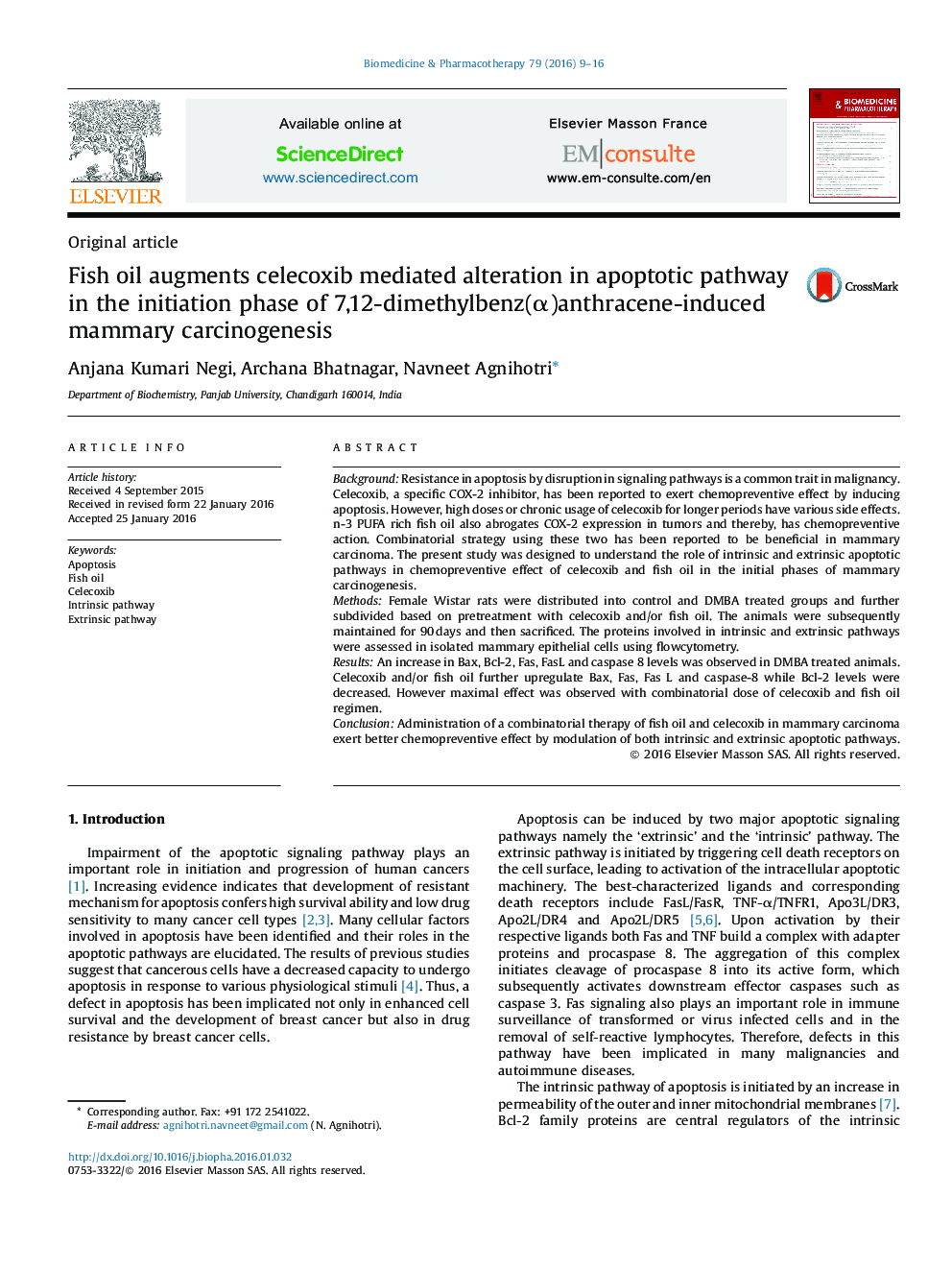| Article ID | Journal | Published Year | Pages | File Type |
|---|---|---|---|---|
| 2524786 | Biomedicine & Pharmacotherapy | 2016 | 8 Pages |
BackgroundResistance in apoptosis by disruption in signaling pathways is a common trait in malignancy. Celecoxib, a specific COX-2 inhibitor, has been reported to exert chemopreventive effect by inducing apoptosis. However, high doses or chronic usage of celecoxib for longer periods have various side effects. n-3 PUFA rich fish oil also abrogates COX-2 expression in tumors and thereby, has chemopreventive action. Combinatorial strategy using these two has been reported to be beneficial in mammary carcinoma. The present study was designed to understand the role of intrinsic and extrinsic apoptotic pathways in chemopreventive effect of celecoxib and fish oil in the initial phases of mammary carcinogenesis.MethodsFemale Wistar rats were distributed into control and DMBA treated groups and further subdivided based on pretreatment with celecoxib and/or fish oil. The animals were subsequently maintained for 90 days and then sacrificed. The proteins involved in intrinsic and extrinsic pathways were assessed in isolated mammary epithelial cells using flowcytometry.ResultsAn increase in Bax, Bcl-2, Fas, FasL and caspase 8 levels was observed in DMBA treated animals. Celecoxib and/or fish oil further upregulate Bax, Fas, Fas L and caspase-8 while Bcl-2 levels were decreased. However maximal effect was observed with combinatorial dose of celecoxib and fish oil regimen.ConclusionAdministration of a combinatorial therapy of fish oil and celecoxib in mammary carcinoma exert better chemopreventive effect by modulation of both intrinsic and extrinsic apoptotic pathways.
